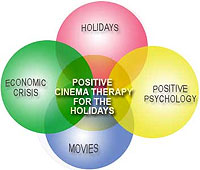Positive Psychology: The New Science of Happiness course (6 CE Credit Hours)

For the past 12 years, a not-so-quiet revolution has been rocking the world of psychology, as well as the world at large. It all began with Dr. Martin Seligman’s APA presidential speech in which he announced the creation of a new field, which he dubbed “Positive Psychology”. For too long, he insisted, psychology had focused on the pathological and the negative. What was needed was a positive model of healthy human possibilities. In short, we needed to study happiness.
Humanistic psychologists were nonplussed by this declaration, inasmuch as they had said the same thing at least 40 years earlier. However, it’s clear that Seligman both wanted to put the quest for happiness on a more empirical footing and, also, to avoid any of the negative associations of the human potential movement, which had been tarred with the brush of being excessively narcissistic. Seligman had already established impeccable scientific credentials with his prior research on learned helplessness and learned optimism. Today, Seligman claims that there already have been some 64,000 research studies on Positive Psychology.
While psychotherapy has traditionally focused on the alleviation of unhappiness, clearly, it behooves clinicians to be aware of the findings of this emerging field on what constitutes happiness and how best to assist their clients in achieving it.
Our exciting new online course, Positive Psychology: The New Science of Happiness is offered for 6 CE credits.
This new course is composed of the following eight interviews with top experts:
- Discovering Positive Psychology with James Pawelski
- Clinical Applications of Positive Psychology with Judy Saltzberg
- From 60 Minutes Producer to Positive Psychologist with John Drimmer
- Buddhist Happiness with Dr. Sylvia Boorstein
- The Happiness Hypothesis with Dr. Haidt
- What Happy Women Know with Cathy Greenberg
- Happiness and Health with Dacher Keltner
- Positive Psychology with John Schinnerer
This new course is offered for 6 CE credits. To learn more of the details, go to Positive Psychology: The New Science of Happiness.
Among the findings to emerge from the research on positive psychology and discussed in the course are the following:
- Once people are beyond a subsistence level, money has very little, if any, correlation with happiness.
- Great windfalls, such as a promotion or winning the lottery are not correlated with lasting happiness.
- There is a strong genetic component, which has been called our “happiness set point” that accounts for about 50% of our happiness.
- Despite the set point limitation, it’s estimated that we have potential control over 40% of our happiness.
- Married people tend to be happier. In fact, strong relationship ties are the single most important factor, beyond genetics.
- Optimistic people tend to be happier.
- Happy people make more money over the course of their lives.
- Happy people do better at work.
- Happy people live longer.
- Happy people are healthier.
We now offer four courses on Positive Psychology:
1. Positive Psychology: The New Science of Happiness: 6 CE Credit Hours
2. Aging, Long-term Care, and Positive Psychology: 3 CE Credit Hours
3. Aging and Positive Psychology: 10 CE Credit Hours
4. Positive Psychology & The Movies: 5 CE Credit Hours